Business
/ArcaMax

Miami adds incentives for high-rises up to 1 mile from rail stations
A new zoning program in the city of Miami will allow for denser developments in a radius of up to a mile around existing and planned Metrorail and commuter rail stations, including Brightline stations, inside city boundaries.
Within those zones, developers can apply to build high-rise residential and commercial projects with considerably more ...Read more

Over 160 Blizzard workers in Irvine join union as gaming-industry labor movement expands
More than 160 workers at video game company Blizzard Entertainment have voted to unionize.
The workers, who produce in-house cinematics, animation, trailers, promotional videos and other narrative content, are just the latest batch in the video game industry to unionize, with more than 6,000 having organized across the U.S. and Canada.
A wave ...Read more
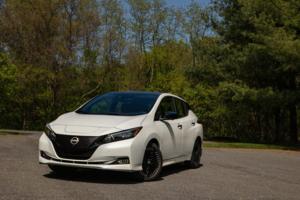
Here are the EVs you can buy for less than $35,000
As steep tariffs threaten to drive up car prices and an incentive for buying electric vehicles nears its expiration date, electric vehicles and plug-in hybrids are becoming harder to afford.
For those looking to make the switch to electric on a budget, there are just a few low-cost options. Here's a look at those available for under $35,000.
...Read more
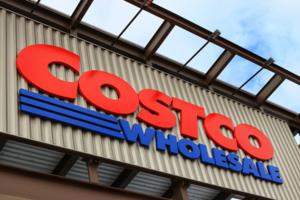
Costco forgoes sale of abortion pill, emboldening religious groups
Costco Wholesale Corp. has decided not to dispense the abortion pill mifepristone at its more than 500 pharmacy locations, a decision hailed by a group of faith-based activists who urged the retailer to avoid selling the drug.
Costco said in a statement that it hasn’t seen consumer demand for the pill, and had no comment on whether the ...Read more

US jobless claims edge lower, continuing claims remain elevated
Applications for U.S. unemployment benefits edged lower last week, suggesting employers remain reluctant to lay off workers.
Initial claims decreased by 3,000 to 224,000 in the week ended Aug. 9, which was about in line with economists’ forecasts.
Businesses have pared back on hiring new employees amid economic uncertainty driven by ...Read more

After pandemic high, WA weed industry finds itself in a funk
“Munchie Monday.”
“Wax Wednesday.”
“Flower Friday.”
These are just a few of the weekly pitches offered by Shawn Kemp’s Cannabis, one of the largest dispensaries in Seattle. The deals, which range from 55% to 65% off, reflect a larger trend in Washington’s matured marijuana market: You can now buy more weed for less.
The total...Read more
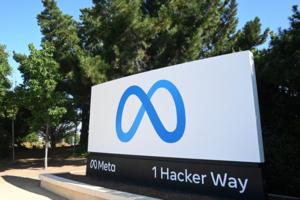
Meta's superintelligence dream team will be management challenge of the century
Meta Platforms Inc. is spending a fortune to assemble the brightest minds in artificial intelligence. Chief Executive Officer Mark Zuckerberg may want to note: Research suggests that packing a team with too much genius can backfire.
So far, more than a dozen engineers from OpenAI have defected to Meta, joined by notable experts from Anthropic ...Read more
Real estate Q&A: How can we stop complaining neighbor's harassing behavior?
Q: I’m seeking advice regarding a neighbor who has repeatedly filed unfounded complaints to city authorities about several properties in our neighborhood, including ours. Although most complaints were unfounded, we still had to contend with the stress and inconvenience of dealing with code enforcement. We believe this behavior has escalated ...Read more
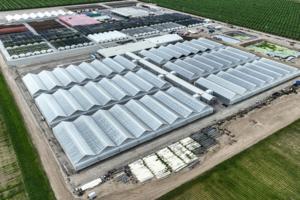
California's richest agricultural family is shuttering a farm the UFW sought to unionize
One of California's largest agricultural employers plans to close a Central Valley grape nursery by the end of the year after laying off hundreds of employees, including many supportive of a United Farm Workers effort to unionize the workforce.
Wonderful Co., owned by billionaires Stewart and Lynda Resnick, plans to shut down the majority of ...Read more

Air Canada bracing for strike by its 10,000 flight attendants
Canada’s flagship airline, already reeling from declining passenger traffic to and from the United States, is bracing for a strike by its flight attendants Thursday.
Air Canada, the second-busiest Canadian operator at Harry Reid International Airport, announced that it is suspending flights on Thursday, issuing a lockout notice to allow for ...Read more

Flight attendants union says summer storms drove record Delta signatures
This summer’s spate of weather disruptions to Delta Air Lines’ operations has driven an increase in union interest among the carrier’s flight attendants, organizers say.
According to the Association of Flight Attendants, which has been working to unionize Delta’s nearly 30,000 flight attendants for decades, with a new campaign started ...Read more
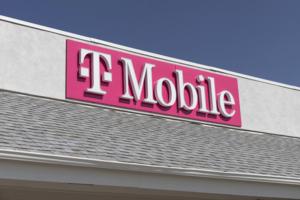
T-Mobile lays off 'small portion' of employees
Bellevue, Washington-based wireless network T-Mobile laid off an undisclosed amount of corporate employees earlier this month shortly after its $4.4 billion acquisition of UScellular.
T-Mobile said in a statement Wednesday it is “evolving” its IT organization and has offered impacted employees “support as they transition.”
T-Mobile did...Read more
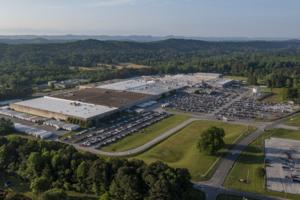
GE Appliances' $3B US manufacturing investment will create jobs in 5 states
A familiar home appliance maker on Wednesday pledged to invest $3 billion over five years in its U.S. operations and workforce, a plan that will include an expansion of production in Georgia.
Louisville, Kentucky-based GE Appliances says the expansion will create 1,000 jobs across five states, many in the Sun Belt. The more-than-a-century-old ...Read more
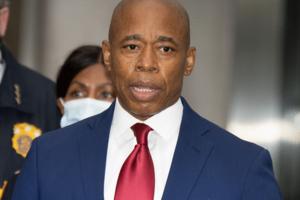
Mayor Adams vetoes bills boosting NYC grocery delivery worker wages after lobbying by Amazon, Instacart
Mayor Adams vetoed two City Council bills late Wednesday that would boost minimum wages for grocery delivery workers to more than $20 an hour — a move that came after his top aide, Randy Mastro, launched an internal advocacy effort against the measures, according to sources familiar with the matter.
The mayor, whose own Department of Consumer...Read more
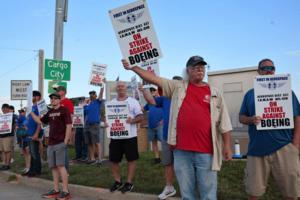
Boeing defense union asks lawmakers to intervene in strike
A union representing workers at Boeing Co.’s St. Louis-area defense factories urged U.S. lawmakers from Missouri to intervene and nudge the planemaker to reach a deal.
The IAM Union, which represents 3,200 workers currently on strike, said it had written letters to senators and representatives to press Boeing to return to the bargaining table...Read more

Ecolab makes $1.8B deal to help expand its business with AI data centers, semiconductor industry
Ecolab is spending $1.8 billion for a high-tech business that purifies water for data centers and semiconductor operations.
The St. Paul, Minnesota-based company’s deal is for Montreal-based Ovivo Inc.’s electronics division, which has about $500 million in annual revenue and 900 employees.
“Ovivo Electronics’ unique technologies ...Read more

California's burger wars heat up as Habit Burger & Grill trolls In-N-Out with new billboard
Habit Burger & Grill has doubled down on its provocative marketing strategy, updating its billboard trolling of burger giant In-N-Out for a second consecutive year after once again beating the chain in a national ranking.
Habit has updated its existing billboard near Los Angeles International Airport, directly across from an In-N-Out location ...Read more
Block, formerly Square, lays off about two dozen more in Missouri
ST. LOUIS — The financial services firm Block, Inc., formerly known as Square Inc., will lay off 23 Missouri workers. These cuts come months after the company let go of 67 workers throughout the state.
According to a notice filed with the state Wednesday, the 23 affected positions include 19 remote customer support specialists and four remote...Read more

Priscilla Presley faces $50 million LA lawsuit from former business partner
The bitter legal feud between Priscilla Presley and her former business partner escalated this week.
Brigitte Kruse, the founder of Agoura Hills-based GWS Auctions Inc. and her business associate Kevin Fialko, on Monday filed a new fraud and breach of contract suit against Presley in Los Angeles Superior Court.
The suit alleges that Elvis' ex-...Read more
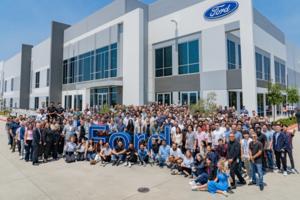
Ford's next 'Model T moment' started in California
LOUISVILLE, Kentucky — A small team of Ford Motor Co. engineers in California launched work three years ago to develop an electric vehicle platform and production system that the Dearborn, Michigan-based automaker says will be as radical as the Model T. But executives insist that doesn't mean Michigan is being left behind.
"We're taking the ...Read more
Popular Stories
- Air Canada bracing for strike by its 10,000 flight attendants
- Mayor Adams vetoes bills boosting NYC grocery delivery worker wages after lobbying by Amazon, Instacart
- T-Mobile lays off 'small portion' of employees
- GE Appliances' $3B US manufacturing investment will create jobs in 5 states
- Flight attendants union says summer storms drove record Delta signatures










